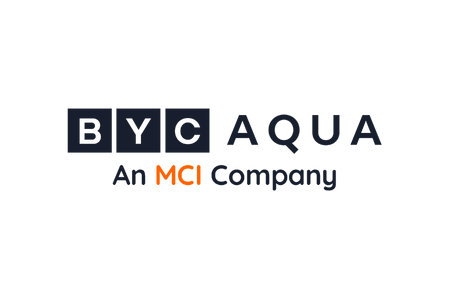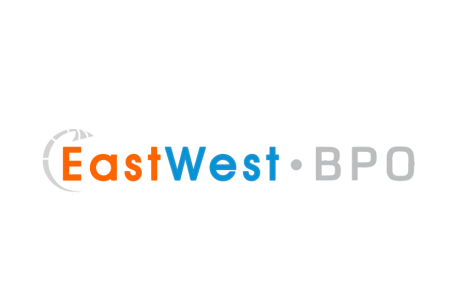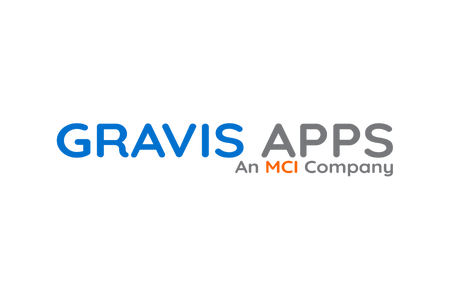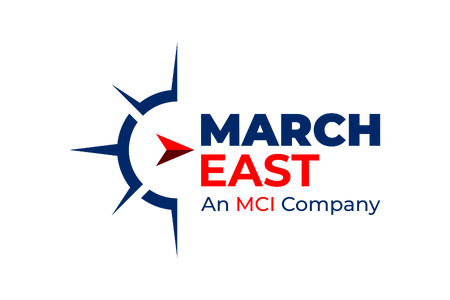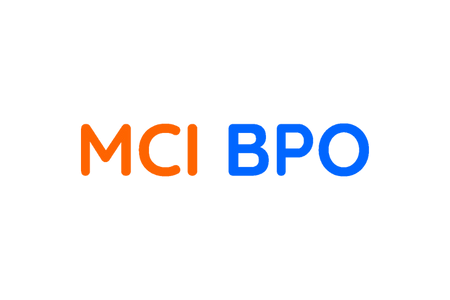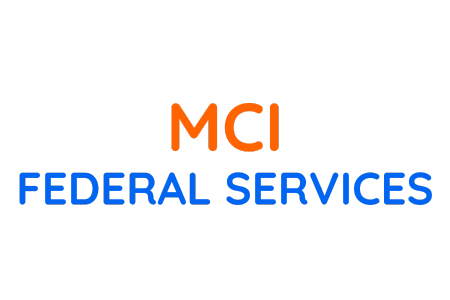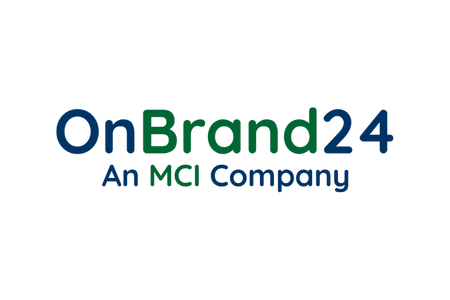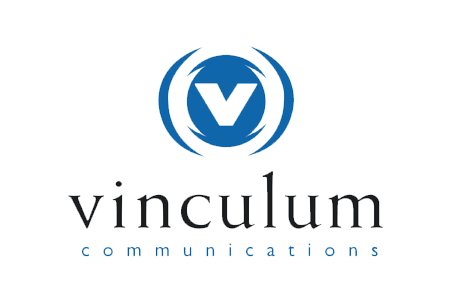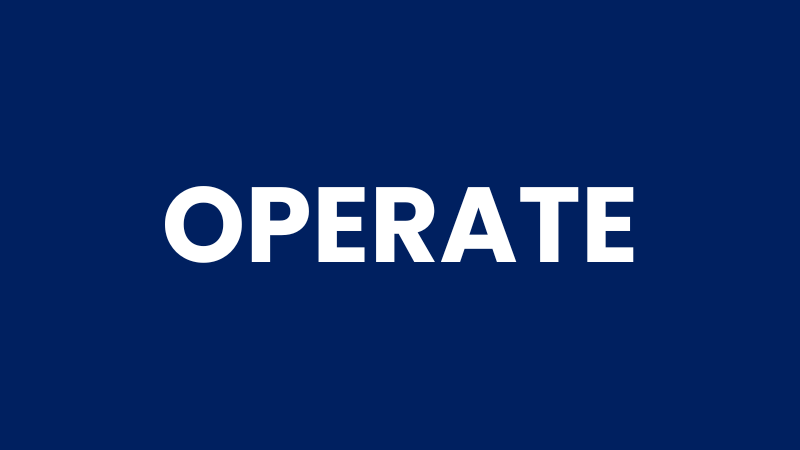The Anthony Marlowe Story – Unleashing Success with the Founder and CEO of MCI
The Anthony Marlowe Story
Marlowe Companies Inc. | MCI
Here’s a fun fact: The first switchboard operators were teenage boys prone to swearing and snarkiness, which explains why the early phone companies opted for unflappable female operators. Over the years manual phone exchanges have gone the way of blacksmiths and cobblers, and today’s call centers are children of the Internet, cloud technology, and artificial intelligence, enabling a smorgasbord of features including automatic display of a caller’s information, call routing, speech analytics, and interactive voice response. (For billing, press 2… )
It’s one thing to have the technology, quite another to use it effectively and innovatively to meet the strategic needs of clients across multiple industries, something Anthony Marlowe has been doing consistently since he made the leap from college telemarketer to call center entrepreneur. In 2003 Anthony founded TMone, later renamed Mass Markets, which today under its multi-faceted holding company MCI, provides business process outsourcing (BPO), inbound and outbound contact center services, telesales, digital services, customer service, customer relationship management, and omnichannel customer experience (CX) application, tools, and services such as phone, text, chat, email, and social. Its growth has been prodigious, making the Inc. 5000 list of fastest-growing companies almost 20 times, peaking at No. 452 nationwide, which was good enough to be the No. 1 fastest-growing company in its headquartered state of Iowa.
Global Call Centers
USA Call Centers
Canadian Call Centers
Central American Call Centers
European Call Centers
Philippines Call Centers
South Africa Call Centers
“We’ve scaled from a humble, five-thousand-square-foot contact center with under fifty employees to more than 4,000 employees across over going on dozens of contact center facilities worldwide,” Anthony says.
Unlike the switchboards and PBXes of yesteryear, MCI does much more than simply connect businesses with their clients and customers. As the company website notes, “It enables business-to-business (B2B) and business-to-consumer (B2C) interactions across a wide range of industries, offering a unique combination of business process support and innovative managed communication interactions” for enterprises large and small, from Fortune 100 corporations to emerging start-ups.
With twenty years of call center customer contact management, business process outsourcing, digital services, and telecommunications experience, Anthony is not exactly an overnight success. And while he didn’t grow up with this particular career in mind, he is the poster child for recognizing an opportunity and going for it.
“I’m a guy from the suburbs of Chicago who wasn’t the best student, preferring things like playing guitar and working on fast cars with my friends,” he says, summing up his teen experience. “My mom asked me what I wanted to do when I graduated high school. I said: I’m going to stick around here. She said something along the lines of: Pack your stuff now. I am getting you a U-Haul this weekend. You ‘re going to go live with your brother and going to school at the University of Iowa. I’m not asking you; I’m telling you. You are not going to stay here and end up parking cars or something for the rest of your life. It was some tough love, but she told me later she went upstairs afterward and cried because it meant I was leaving.”
After a few months enjoying life in a college town, courtesy of the $200 a month his mom was sending him every month, she called and said: You must get a job, so Anthony took a job as a telemarketer at MCI Communications, at the time was in its pre-WorldCom days. At one point MCI Communications was the second-largest long-distance provider in the United States, back when people primarily relied on landlines. MCI was a renegade company that took on AT&T, claiming it was a monopoly, which was later confirmed by the Supreme Court. Consumers had no choice over their phone service.
In 1982 the courts eventually agreed, leading to the break-up of AT&T, then the world’s biggest company and largest private telephone system that had provided local telephone service in the United States and Canada up to that point. Pick one. AT&T-also called Ma Bell because it was originally established by Alexander Graham Bell-was broken up into seven regional companies, the so-called Baby Bells. Along with the breakup of AT&T, consumers were given the right to choose their long-distance carrier, which started intense competition for customers.
“MCI wrote the book on telemarketing,” Anthony says. “They had eighteen call centers of nine thousand agents in the mass markets division.”
At that time a million people a day were switching back and forth between AT&T and MCI and then Sprint when it joined the telecommunications party. Each offered consumers various discounted deals for long distance-Friends and Family, five-cent (a minute) Sundays, ten-cent night calls-to entice people to switch their service.
“So I was trying to get people to sign up for MCI long distance, and for the first three weeks, I sucked at it,” Anthony cheerfully admits. “Then I realized asking people to just give it a try could be a very simple equation. All I needed to do was get a couple of yesses, and almost overnight I began ranking not only number one in our call center but in the top tenth of a percent throughout MCI.”
Anthony’s epiphany was realizing there was power in keeping it simple. “It wasn’t like in the Matrix; I didn’t start seeing zeros and ones computing in my head. This wasn’t computer coding. It was a matter of quickly capturing the person’s attention by asking a couple of simple questions, which enabled me to make telemarketing something that was simple to do.”
Anthony says the phone industry has changed since then. “The kind of marketing I did back then is only a tiny fraction of what is now known as the business process outsourcing (BPO) the industry currently does. Today it’s about calling existing customers and upgrading and getting people to call you. But back then it went something like this: Hi, Anthony Marlowe here from MCI. How are you doing today? What do you think of that $4.95 minimum fee AT&T is charging you whether you use their service or not? MCI doesn’t have that minimum fee, and our rates are lower, so your bill will be less every month. All I need to get you started today is to verify your address. You’re still at 123 Sample Blvd, right?
Consumers proved hugely un-loyal to any particular long-distance service, so if it cost less, people would gladly switch, especially when there was an incentive or promotion involved. Anthony was offering people the opportunity to save money for something they were already using. His approach worked, and he quickly rose through the ranks.
By the time Anthony was twenty-two, he was overseeing more than two hundred telemarketers as an operations manager and became the youngest member of management to be inducted into the MCI Communications Hall of Fame. The company also presented Anthony with Best of the Best and MVP awards for his record work as a sales supervisor in the company’s Arlington, Virginia, International Contact Center Services hub as he was rising through the ranks.
But WorldCom was teetering. In 1997 MCI had agreed to merge with WorldCom, run by flamboyant CEO Bernie Ebbers, to form MCI WorldCom. Ebbers had turned WorldCom into the nation’s second-largest long-distance telecommunications company through a series of rapid acquisitions that also left it heavily in debt. In 2002 MCI WorldCom filed for bankruptcy after admitting to improperly reporting $3.8 billion in expenses. The Justice Department opened a criminal investigation into its business practices while the Securities Exchange Commission focused on $400 million that WorldCom personally loaned Ebbers. The company’s stock price tumbled from $64 per share to a little over $1. (Three years later a jury convicted Ebbers of securities fraud and other crimes, and he was sentenced to twenty-five years in a minimum-security Louisiana prison.)

- 10-Times Inc. Magazine Fastest Growing Company
- Recognized by Inc. Magazine as one of the 25 youngest CEOs in America
- Multiple Corridor Business Journal Fastest Growing Awards
Anthony saw the writing on the wall, and after four years at MCI, knew it was time to get out of Dodge and start his own company. In 2003 he co-founded TMone, a business process outsourcing (BPO) company, and served as its CEO. In 2007 Inc. Magazine recognized Anthony as one of the twenty-five youngest CEOs in America. By 2013 TMone had ranked on the Inc.5000 list of America’s fastest-growing companies for eight consecutive years.
In 2013 he and his partner sold the company to Enhanced Recovery Company. Anthony provides the Readers Digest version of why. “The first reason is that somebody was willing to pay us a boatload of money. The second is there was pending legislation during the Obama Administration that would hamper our business in terms of healthcare costs and other anti-business regulations, which we saw as something that could potentially collapse our margins. We ultimately decided that we wanted to pull most of our chips off the table, so to speak.”
Two years later Anthony bought TMone back, this time as a sole proprietor under his wholly-owned holding company, Marlowe Companies, Inc., and renamed the company Mass Markets, another homage to his tenure as a young telemarketer in the MCI call center. (Mass Markets was the business unit that handled MCI Communications’ sales and customer service.) But the new branding was part of a larger strategy, not simply a marketing exercise: Mass Markets would operate a network of domestic call center and managed information services locations.

In the years since he founded TMone, the company has evolved into a more full-service enterprise services provider. In addition to providing database and infrastructure services, especially relating to cloud computing, Mass Markets provided and managed more software, particularly in the customer experience, digital experience space.
“We developed and integrated a pretty substantial suite of software that we started to provide to the market, with or without staff support,” Anthony says. His plan for Mass Markets also included developing more software internally and acquiring other companies with those capabilities.
In a 2015 article Anthony noted, “This is maybe where people are confused locally who think I’m just trying to put a spin on a call center. It wouldn’t be the first time I was underestimated. But we will also leverage the Mass Markets platform to grow and support our own software as a service and applications business, which includes software that we have already developed in-house, and software apps we were acquiring.
“I’m launching Mass Markets to help companies reduce the costs of doing business by participating in the combined management of information services and the modernization of telecommunications. No one can aggregate, develop, procure, and manage this type of platform in the United States as efficiently as we can, so we’re optimistic the company will have continued growth. From the time I bought back my company, it has gone from literally a couple of hundred people to thousands of people. It’s gone from ~$15 million in revenue in 2016 to ~$240 million in 2021.”
From the beginning Anthony built his portfolio to facilitate that kind of sustainable growth, beginning with Iowa City Capital Partners (ICCP), which serves as his private office. Founded in 2013, the firm began minority investing in a wide variety of sectors, including business products, service, software, sports, and technology.

“After four seasons as a minority owner, I decided to harvest my investment. It was a wild ride, and wouldn’t change a minute. That was during a period of time when ICCP made minority investments in other businesses, but I quickly learned I wasn’t a big fan of that because of how people would forego my advice based on someone’s social media footprint or because they spent time in Silicon Valley,” Anthony says. “I thought: Enough with focusing on other investments; I’m going to use ICCP to invest in companies that Anthony Marlowe runs and controls or can clearly materially impact. As a result, ICCP is MCI’s largest shareholder.”
In 2015 ICCP turned to sponsoring majority-controlled acquisitions.
A self-described serial entrepreneur, he founded additional companies that have distinct synergy, such as MBM Developments/Marlowe National, a commercial real estate firm that owns some of MCI’s locations. Anthony also Valor Intelligent Processing (VIP), a digital, tech-enabled, and cutting-edge accounts receivable management, claims processing, and revenue cycle management company headquartered in Jacksonville, Florida. Valor provides enterprise level first- and third-party solutions for every stage of the customer account life-cycle including.

As its mission statement makes clear, VIP is as much about people as it is technology.
Making our mark, memorable.
A significant aspect of the company’s growth has also involved strategic acquisitions. In 2016 MCI bought the intellectual property and development from Orlando-based Gravis Marketing, one of the top political software developers in North America, then used those assets to launch Gravis Apps, a software-as-a-service (SaaS) company.
“The call center software market was demanding major savings, on both a direct and private label/wholesale basis,” Anthony explains. “Many American commercial companies and non-profits utilize a similar software. Unfortunately, many are materially overpriced, and not nimble. Gravis Apps emphasizes cost reductions while delivering high-quality, best-in-class hosted ACD/SMS/MMS/CCaaS/Dialer Services. It provides any organization with enterprise capabilities and infrastructure overnight.”
Anthony also notes that Gravis Apps provides solutions for both the public sector and enterprises to meet the challenges—and opportunities—created in today’s domestic and global markets by technological advancements, changing customer expectations, an increased focus on corporate security and consumer privacy, and ever-evolving regulations and compliance requirements.

The 2019 acquisition of Nova Scotia-based ServiCom, which specializes in call center customer acquisition and customer relationship management, reflects Anthony’s belief to never lose sight of the human element of a business. He bought the ServiCom call center after it had abruptly shut down, heading to bankruptcy. He renamed it the Sydney Call Centre and rehired all the employees.
“Acquiring it was an absolute no-brainer,” Anthony says. “It has a tremendous client base, tremendous team, tremendous people—it was a win-win-win all around. Obviously, no one wants to see workers displaced, especially abruptly. We had been trying to buy the business on an ongoing basis but there were difficulties. But we knew this place operates at a very high capacity and saw it as a real opportunity.
“The way we generate revenue is via services. Without employees working hard, and making and taking phone calls and having high-quality interactions with our clients, customers and prospects, there is no revenue. So the fact that there was a highly dedicated, highly tenured, high-aptitude worker base, was probably the most attractive part. The Sydney Call Centre operates at a very high level of efficiency and capacity. The fact that all the clients and customers were extremely interested in keeping their work here was inherent due diligence in itself. And any time you have a place where people have been working for nineteen, twenty years, that just means a lot. This has been a staple for a couple of companies for two decades, and we plan on it being a staple for our company for decades to come as well.”
In 2020 MCI acquired the assets of ETAN/CPA in Dallas and San Diego-based Phoneware, Inc. The company also expanded its US operations with a badge flip in Las Cruces, New Mexico. Anthony calls the city a natural fit for MCI because of its affordable office space, labor pools, and a higher proportion of bilingual speakers.
In 2022 MCI acquired ERC’s USA BPO client base.
All of these business moves, along with twenty years of record organic growth, led MCI to the Inc. 500 list as one of the United States’ fastest growing companies.
”Making the top five hundred of the Inc. 5000 in an amazing feat. It’s been a tremendous ride; I can’t thank my team enough,” Anthony says, and he calls running MCI and its holdings his main job, which takes approximately seventy-five hours a week. “The companies all have things going on-multiple acquisitions at different stages, multiple business developments, new client opportunities at different stages, multiple internal initiatives-so I have to deal with what are the most pressing issues that day. I’ve never had the same day. Sure, there might be the same conference call every morning with the same key executives, but not one day has ever been the same as another. Never. But I find life kind of has a way of self-prioritizing.”
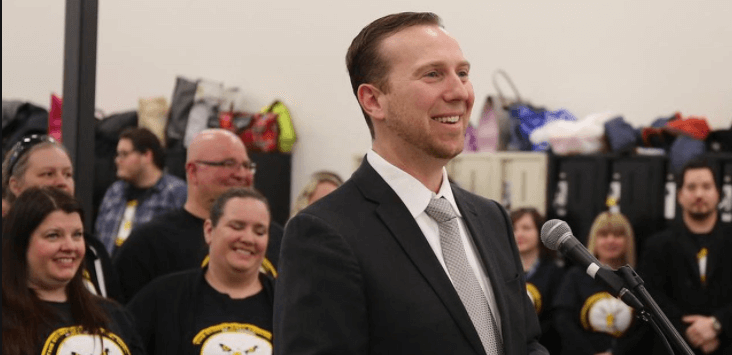
Which in Anthony’s case boils down to two main categories.
“If I’m not sleeping, I’m working,” he laughs. “Moments like saving the call center in Sydney, Nova Scotia, make it all worth it.” But he acknowledges, “Massive ambition is tough on non-work life, time for health, friends, etc., but she’s very supportive and amazingly understanding of how ambitious I am and believes in my passions.”
One of which is Anthony’s commitment to his employees. “I am deeply passionate about teaching people how to succeed as BPO, DXP, sales, software, operations, IT, call center, and customer service professionals. When you are part of the MCI team, you are part of a legacy of hardworking, creative, and fun people who come together every day with the drive to make an impact on themselves, their teammates, and the growing organization.”
A large percentage of workers that work at MCI either move up within MCI or further their careers outside of MCI, a major steppingstone. And that includes himself. As such Anthony says his fiduciary responsibility and primary job as CEO is to always look at what’s the most upside for MCI shareholders as well as his employees.
“So, sure, my day is consumed partially by what’s on fire this month, this week, this day, this hour. But my number one goal is driving as much value as possible. That was true when I made my first telemarketing sale in March of 1998 to now creating wealth and increased opportunities for thousands of people. We’ve got going on two thousand employees. Add to the average family size is three or four people, and that’s a lot of people. So it’s a big responsibility, but the ambition drives us.”
As Anthony points out, success requires a lot of work and quality workers. “Our ambition is highly demanding, especially on the key contributors. We maintain a small core people who have the weight of the world on their shoulders and their sacrifices go beyond eight- to ten-hour days. The people that are best in their jobs tend to be the ones that others in the organization lean on because they’re dependable, reliable, fast, and get stuff done. The way we generate revenue is via services, so without employees working hard, making and taking phone calls, and having high quality interactions with our clients, customers, and prospects, there is no revenue.”
Anthony says that while he’s not involved with hiring on a frontline level, he is when it comes to management. “Especially senior management, I’m involved. There’s something in call centers that’s very unique from other businesses. You can be from any background, any level of education, with previous experience or not, and find your way in the call center business. Some of the most successful operators, executives, and managers found their way in this environment. Let’s face it; it’s not Morgan-Stanley. But it’s a business where people can find their confidence and work their way up. A lot of people find tremendous careers in this space- regardless of who they are or what they look like-because they’re good at it. Further, call centers aren’t just a huge industry in the United States; business process outsourcing is probably approaching a trillion globally.”
Technology has fueled a lot of that growth. Anthony believes that interactive voice response was the first truly transcendent moment in the industry. The second was e-commerce.
“Sure, bots and AI are increasing, but the real revolution is that so many companies that used to be brick and mortar and wholesale-driven are now going direct to consumer (D2C). Because of that D2C revolution, we have clients you wouldn’t have heard of with online stores selling $50 million dollars of goods. Because they have to field thousands of calls every day, they spend a million or two a year on contact center services, such as an IVR, a bot for simple questions, and a live agent for more complex issues. We also handle their chat, email, credit authorization, inbound sales, and returns. You’d be shocked at the amount of business processing opportunities coming out of mid-tier e-commerce companies.”
Anthony admits it’s been a challenge educating their clients about all the technological services MCI now offers. “Some would seek other vendors for that and spend a lot more money than necessary. I’d call and ask them: What are you doing? What you spent a $100,000 on, we could have provided for a tenth of the cost. But for all the technology, there’s still going to be agents behind the AI. You might not need two hundred people to do your customer service anymore; you might only need one hundred now. However, those one hundred people are still sitting behind your bot to finish the interaction should it be unable to provide the answer.”
While advancing technology will help all call centers become ever more efficient, the most successful companies will continue to have the best management, strategy, and culture regardless of market trends or smart systems.
“In our industry there’s a lot of consolidation,” Anthony notes. “All these companies tend to buy competitors then like to slash and burn the brand that they’ve acquired. I take a different approach. The brands of the companies I buy have been successful. They have their own culture. They have their own customer base. And they have different verticals they service and different products and services they perform. So where some in our industry are just business process outsourcing companies that focus on call centers, MCI is a multi-faceted, tech-enabled, business process outsourcing company that is also a customer experience provider and a digital experience provider. So we have software, we have call centers, we have tools, and we have managed services making us a one-stop shop for any company’s diverse needs. Our software offering puts us at an advantage ahead of that curve.”
Anthony says MCI rejected the industry trend of competing for temporary project work, preferring to partner with companies that need help starting or maintaining ongoing programs, which are longer-term and more stable.
“As a result we typically don’t charge for setup or implementation costs, making it up over time in the form of inclusive pricing. You see these other companies focused too much on vertical concentration, and they get in trouble. We have different companies that specialize in different verticals, and that enables us to have customer and vertical diversity, dependability, and sustainability.”
While Anthony has found professional strength in diversity, on a personal level he finds fulfillment in mentoring, with both strangers and employees.
“I mentor my staff, particularly spending a lot of bandwidth on the operations management roles. I’ve thought that once I get to the point in time where perhaps I’m thinking about retiring or not playing as active of a role-in five years, twenty years-who knows?-! would absolutely plan on mentoring. It’s a very cool experience.
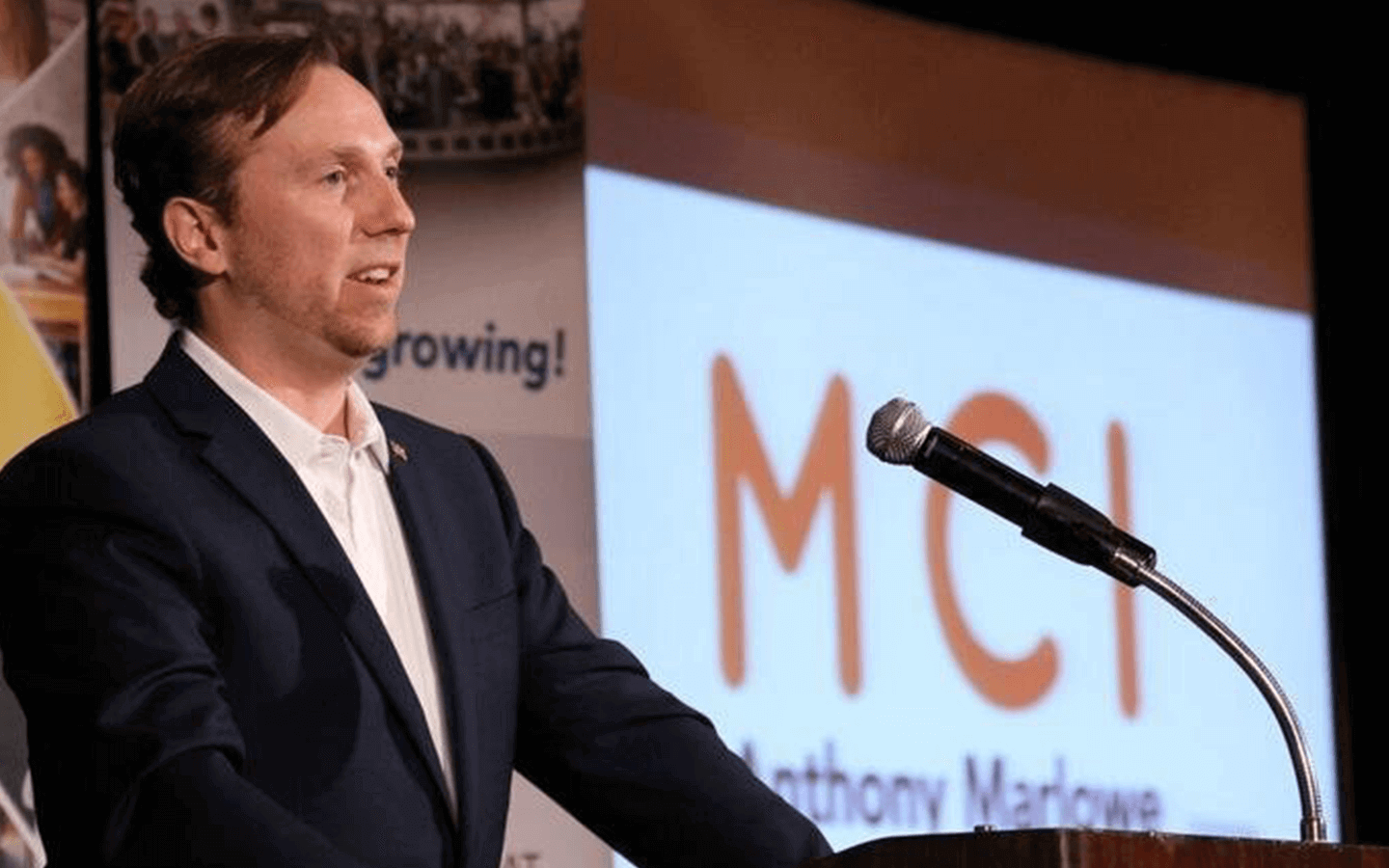
“I was twenty-three when I started my first company, and I quickly got a taste of real life. The government regulations, policies, and administrative red tape was a little bit shocking-the triennial review order, the telemarketing sales rule-we had to figure these things out quickly. I pride myself on never having any kind of violation or inquiry in almost twenty years, we play, and always will play, by the book.”
Anthony also tells entrepreneurs to carefully consider any potential business partners.
“A lot of people want to have a partner or partners, but they’re not easy. Just like half of marriages fail, half of business partnerships go sideways too. To offload risk they go into a partnership saying: You do this; I’ll do that. Early on, especially in younger companies, I think that’s helpful, but when things really take off, it can sometimes become difficult because people grow in different directions. Making it more problematic is that the partner you’ve been in the trenches with is often a family member or close friend. If you’re not on the same page, how do you contemplate making a fiduciary decision that will aggravate your best friend? Companies really need to predefine a plan of what happens when things take off, who oversees the decision to stay organic or add non-organic growth to the mix. If there’s a 50-50 partnership and it’s never decided early on where the buck stops, a lot of value could be left on the table, with too much time spent on partner relations. Every company needs a clear chief executive officer, someone has to have the final say.”
Lastly, Anthony believes a lot of success is a matter of finding the right position that best fits your personality and life experience. “I was the youngest of three siblings, and my brothers were much older than me. They were of college age before I was in high school, so I always got dragged to adult situations. And we are of Greek heritage, which is where I’m sure I inherited my work ethic and skill for making a business. I know my mom and her Uncle Alec (Papastavrou) Papastavros, really had an influence me in terms of my work ethic, perseverance, and ambition.”
He also played hockey and found there was something empowering about playing a contact sport with equipment.
“If you have a helmet and facemask on and someone punches you in the face and you don’t feel it, all of a sudden you’re not so scared walking down the street. So interacting with adults, being able to take a lick and realizing that I’m going to live, and having just enough ADHD, ended up being the formula for me to be successful when I stumbled into the call center where I was trained in sales.”
Anthony notes that he’s been selling telecommunications service directly or indirectly for the last twenty years, taking the opportunity and turning a part-time job he originally took for beer money while pretending to be in college into a ~$200 million-plus company.
“Having been on the phones and having done just about every role in this business means I’m able to speak from experience. Also, when you have an understanding of what it’s like on the ground in the trenches, which goes a long way in my interactions with employees, clients, and just about any department, internally or externally. But in the end, success just has to do with energy, urgency, and not being afraid to try things, do things, or ask for things. In order to have a business, you have to have revenue, in order to have revenue someone needs to sell something. Some people make sales, and some make excuses. If you’re too scared to pick up the phone and pitch your product or service or too scared to leverage your network to get a meeting with a buyer or investor, forget about it. I don’t know why so many people are so timid in life. One day the magnetic field could be weak, and the sun could sneeze and tum us into Mars overnight, so pick up the phone already, get that meeting, handle that objection. In business, no means try harder or a different way the next time.”
“Let’s go for a billion, team.”
Connect with Anthony Marlowe on LinkedIn
Like this article? Please Share on Social Media! Thank You!
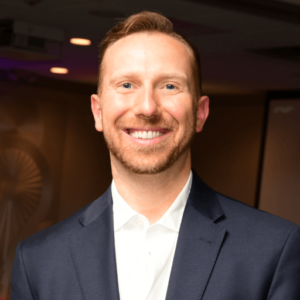
Anthony Marlowe
Marlowe is a lifelong entrepreneur with 25+ years experience in the BPO, Call/Contact Center, CX, Tech and Telephony Industries. Marlowe is the founder and CEO of MCI and each of its subsidiaries: BYC Aqua, East West BPO, Gravis Apps, Gravis Marketing, March East, Mass Markets, MCI BPOaaS, MCI BPO, MCI Federal Services, OnBrand24, Sydney Call Centre, TeleTechnology, Valor Intelligent Processing and Vinculum. Marlowe is also the owner of Iowa City Capital Partners dba Marlowe Group, Marlowe's private investment office.

Anthony Marlowe
Marlowe is a lifelong entrepreneur with 25+ years experience in the BPO, Call/Contact Center, CX, Tech and Telephony Industries. Marlowe is the founder and CEO of MCI and each of its subsidiaries: BYC Aqua, East West BPO, Gravis Apps, Gravis Marketing, March East, Mass Markets, MCI BPOaaS, MCI BPO, MCI Federal Services, OnBrand24, Sydney Call Centre, TeleTechnology, Valor Intelligent Processing and Vinculum. Marlowe is also the owner of Iowa City Capital Partners dba Marlowe Group, Marlowe's private investment office.
Looking for a reliable call center outsourcing provider?
Looking for a reliable call center outsourcing provider? Look no further than MCI. With our extensive industry experience and a range of BPO services, we are the premier choice for your call center needs.


